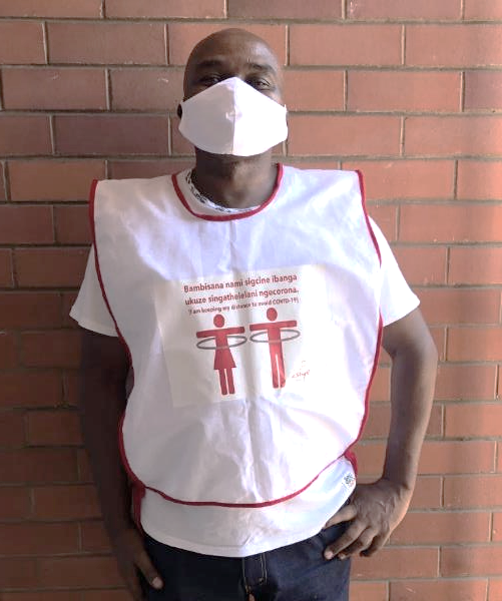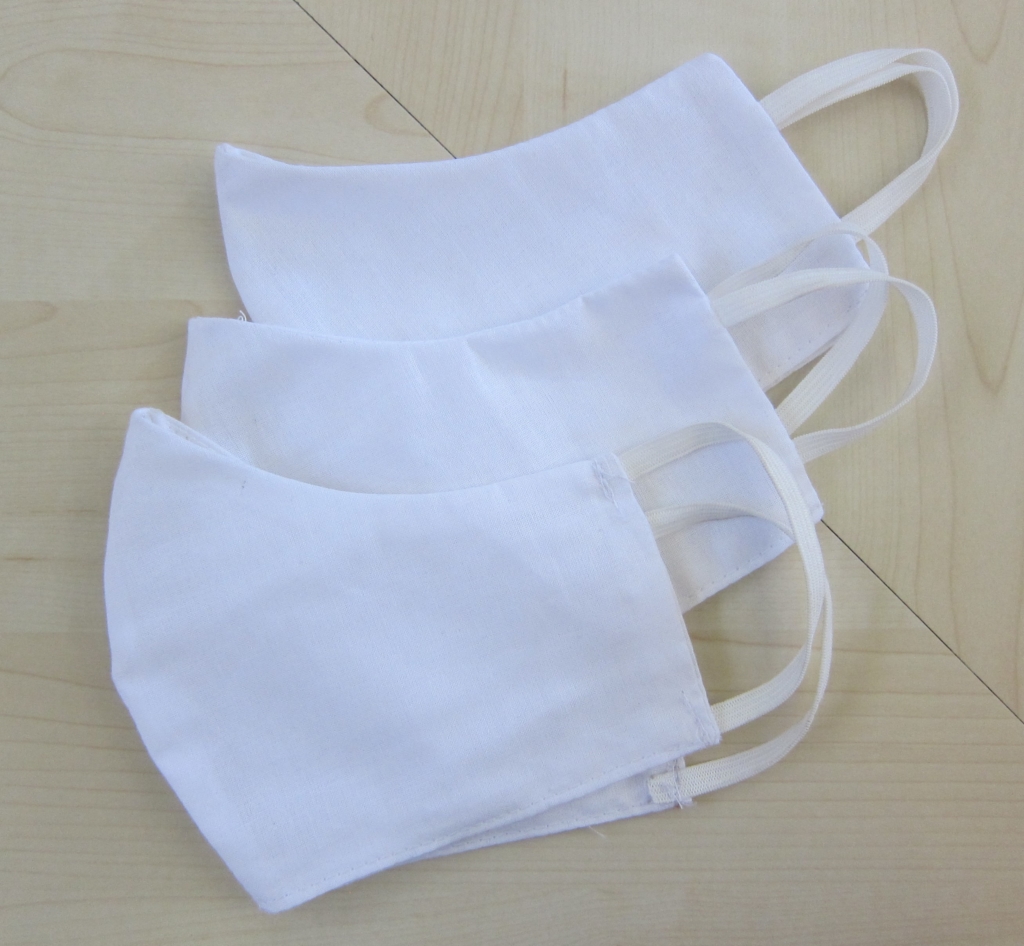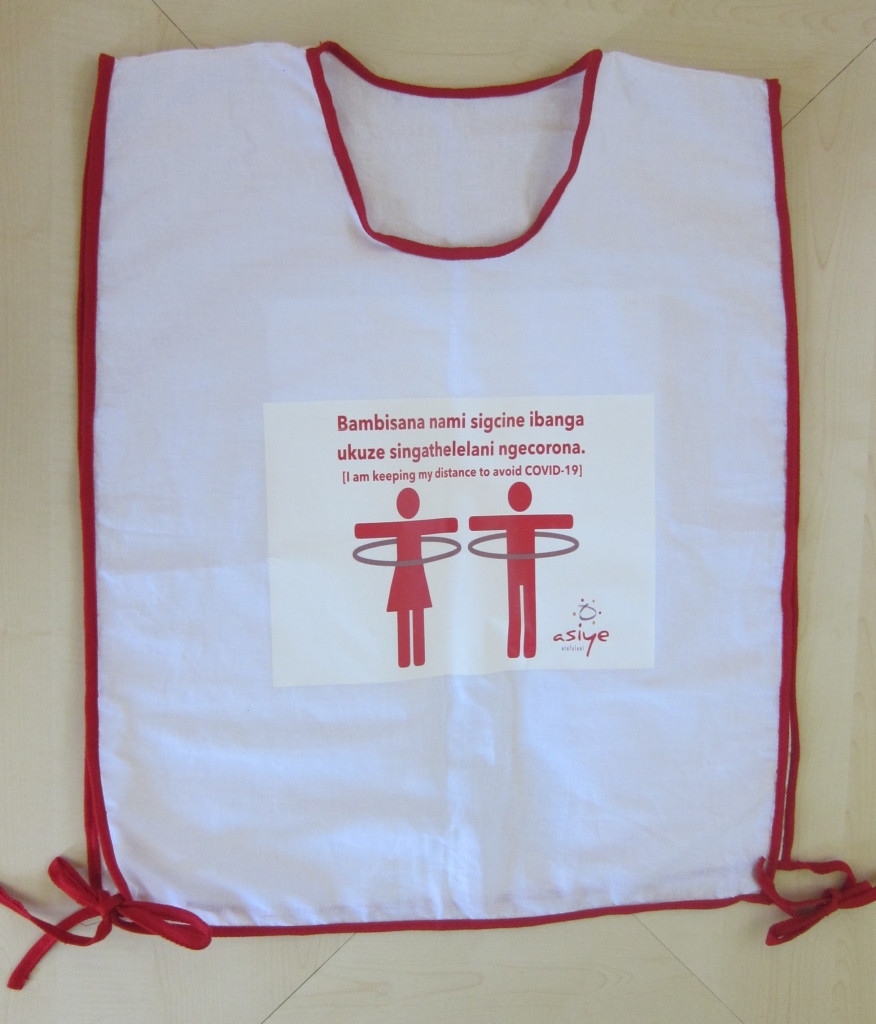Toni Ottanelli-Gale
As the wave of the COVID-19 pandemic reached South Africa, the nation mobilised swiftly and implemented necessary measures to ‘flatten the curve’ of COVID-19 cases. Despite broad awareness of COVID-19, an understanding of the way the virus spreads and mechanisms to prevent transmission of this highly contagious virus, were limited
This is particularly a concern in urban public spaces and markets where there are large concentrations of people engaging with each other. There are over 21,000 informal workers operating in public spaces within Durban’s inner-city and up to 8,000 informal workers who sustain their livelihoods in Warwick Junction, the largest transport node in Durban, through which approximately 500,000 commuters traverse through everyday.
It’s within these public spaces that knowledge of COVID-19, and ways to avoid / limit contamination, is critical for the safety of vulnerable denizens. In response to this gap, WIEGO in collaboration with AeT and Health Professionals from University of KwaZulu-Natal’s Occupational and Environmental Health department (led by Professor Rajen Naidoo, Academic Leader & Chief Specialist) developed COVID-19 Guidelines for Informal Traders (in streets, markets and Spaza shops). Focused messaging (translated into isiZulu) will be distributed locally via both print and digital mediums to informal worker networks. These guidelines will also be distributed to support public space safety in response to COVID-19 in similar contexts around the world.
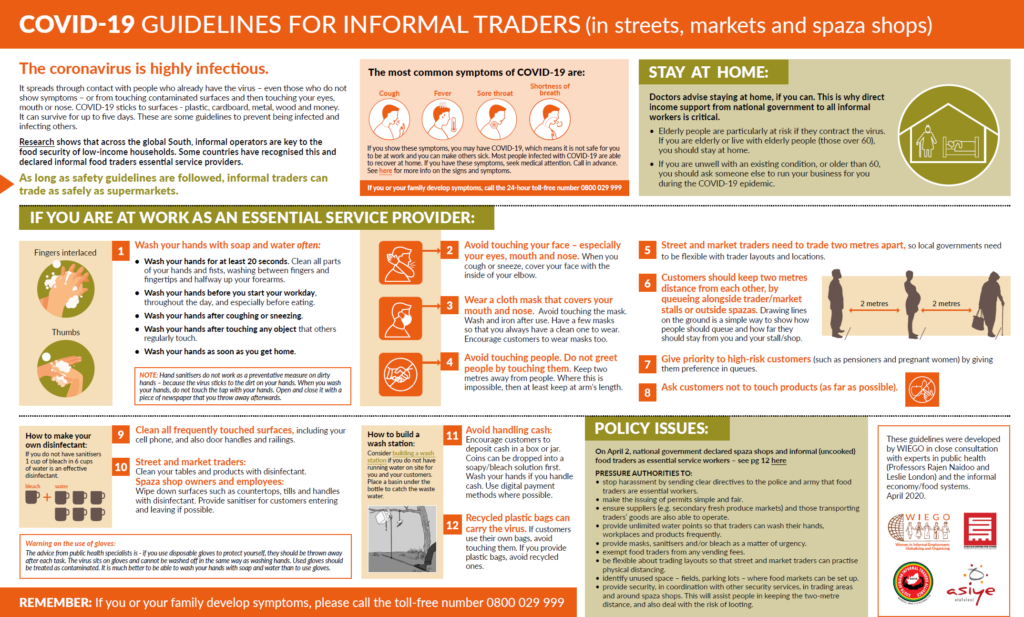
Further, AeT developed various ‘street’ interventions particularly to support informal workers in public spaces. These include Physical Distancing Bibs, Protective (Non-surgical) Masks and Street Vendor Hand Washing Stations. Funding dependent, these preventative mechanisms against COVID-19 will be piloted in Warwick Junction and if successful they will provide health benefits as well as economic benefits for the traders, as described below. Ultimately this programme aims to benefit other public spaces and markets through piloting and documenting the processes and prototypes.
Prototypes of Physical Distancing Bibs and Protective (non-surgical) Masks were made and the aim is for them to be manufactured in Warwick Junction and distributed throughout the inner-city. In the markets of Warwick Junction there is a group of informal workers who manufacture garments. Leading up to Easter is usually their busiest season because they make uniforms for church gatherings. The investment they have made into stock will completely be lost due to the COVID-19 lockdown over this period. Unfortunately, their industrial sewing machines can’t easily be moved and therefore whole the markets are closed during lockdown, no production can take place. However, the production of bibs and masks by these informal traders post-lockdown will not only protect the markets (limit the transmission of COVID-19), it will also provide the garment-makers with an opportunity to earn a livelihood and recover after this challenging period. AeT is also exploring alternative solutions for production during lockdown.
Other major concerns are that the public conveniences in Warwick Junction have no running water for hand washing and the exchange of cash between informal workers and their customers, as everything can be contaminated by COVID-19. Various Wash Stations are being developed to address these vulnerabilities, which could be distributed amongst the street vendors and market trades as well as larger ones which can be positioned in proximity to the public conveniences. Each wash station could be managed, maintained and sustained by a local street vendor or market trader. These are currently in development but post-lockdown they could be locally made (and potentially modified) by the carpenters in Warwick Junction.
AeT is in the process of securing a donation of soap to be distributed to support the implementation and effectiveness of the hand washing stations.
This programme aims to protect the informal workers and their livelihoods, creating a pathway through the challenging circumstances they are up against. Informal workers are some of the most vulnerable urban workers, with limited access to resources and no social protection.
Beyond these core activities, another ‘street’ response is the bottling and distribution of Sanitizer and Degreaser pre- and post- lockdown to around 1,500 informal workers (2 Litres each). Three drums were donated by a local business. On Thursday 26th March, the last day before South Africa’s nation-wide lockdown, the AeT team and volunteers began the distribution. The Warwick Junction community were able to collect 2 litres worth Sanitizer and Degreaser if they brought a clean 2 Litre plastic bottle with them. To get the process going AeT cleaned and filled some plastic bottles purchased from an informal recycler in Warwick Junction. Once word was out in the Warwick Junction community that it was available, there was a stream of people for over 3 hours bringing plastic bottles and collecting Sanitizer.
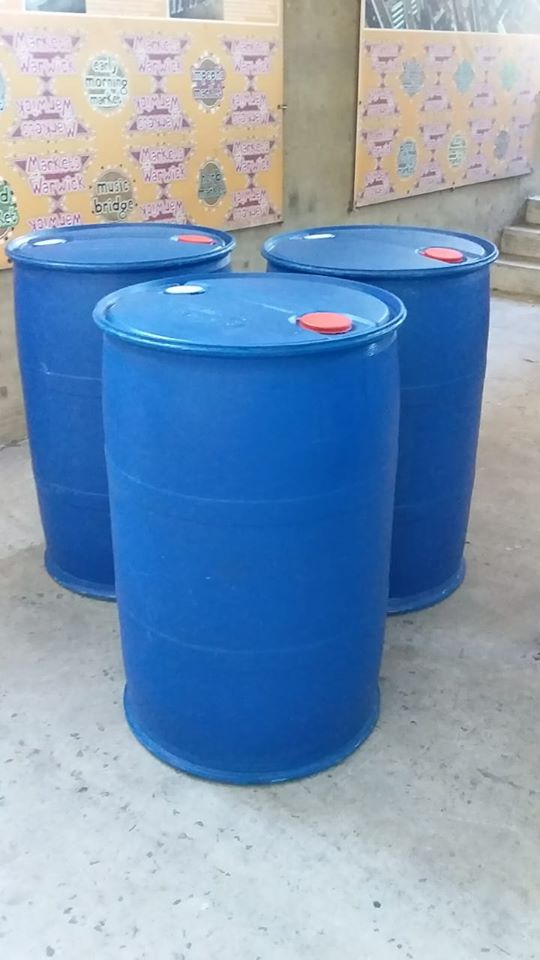
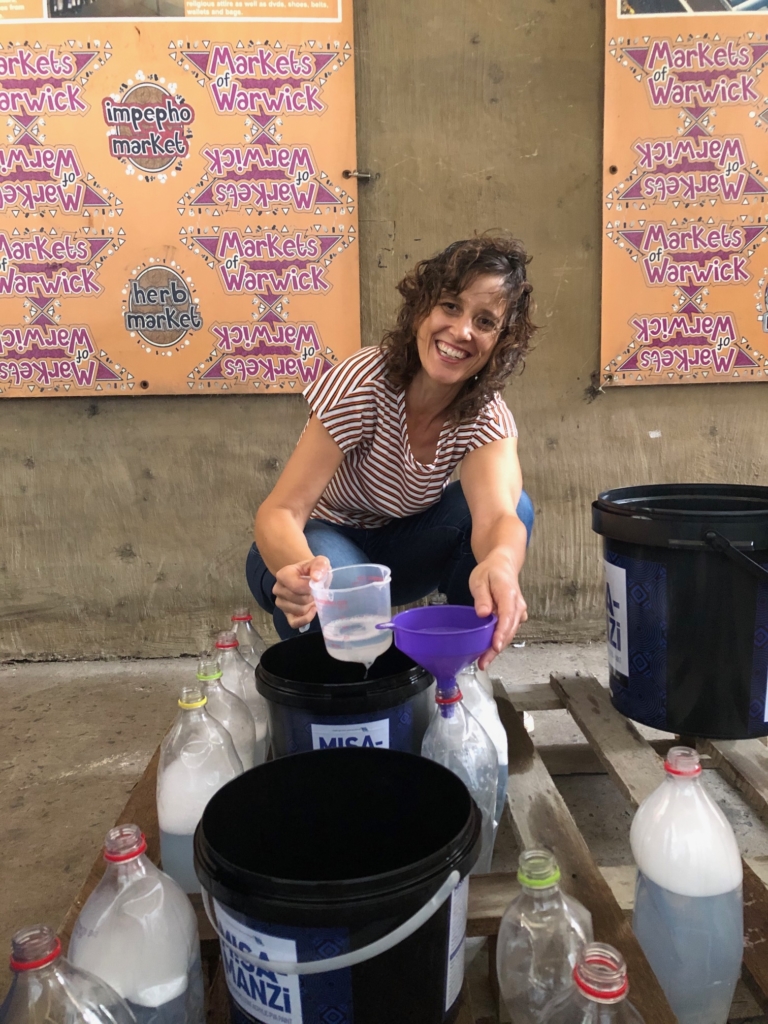
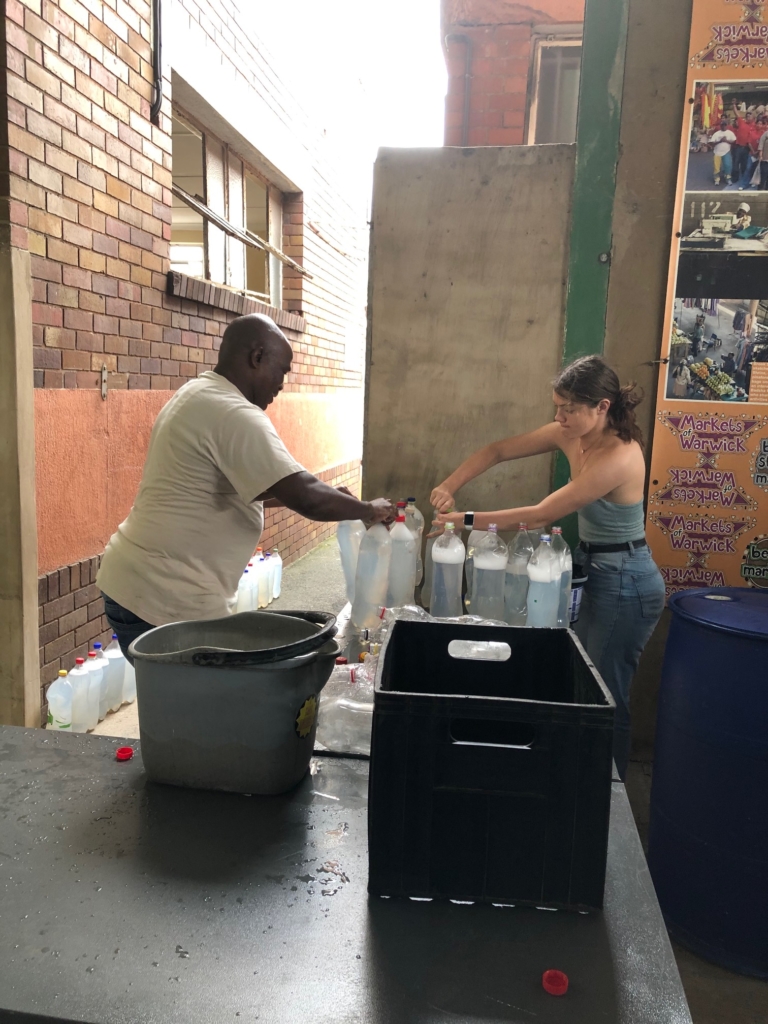
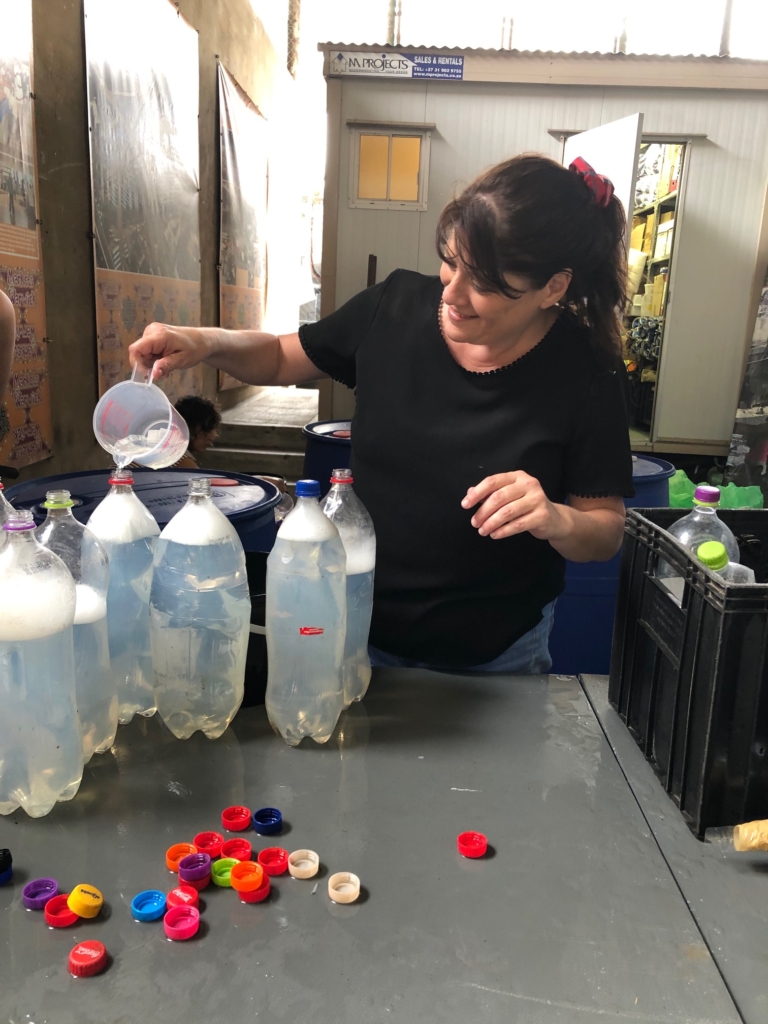
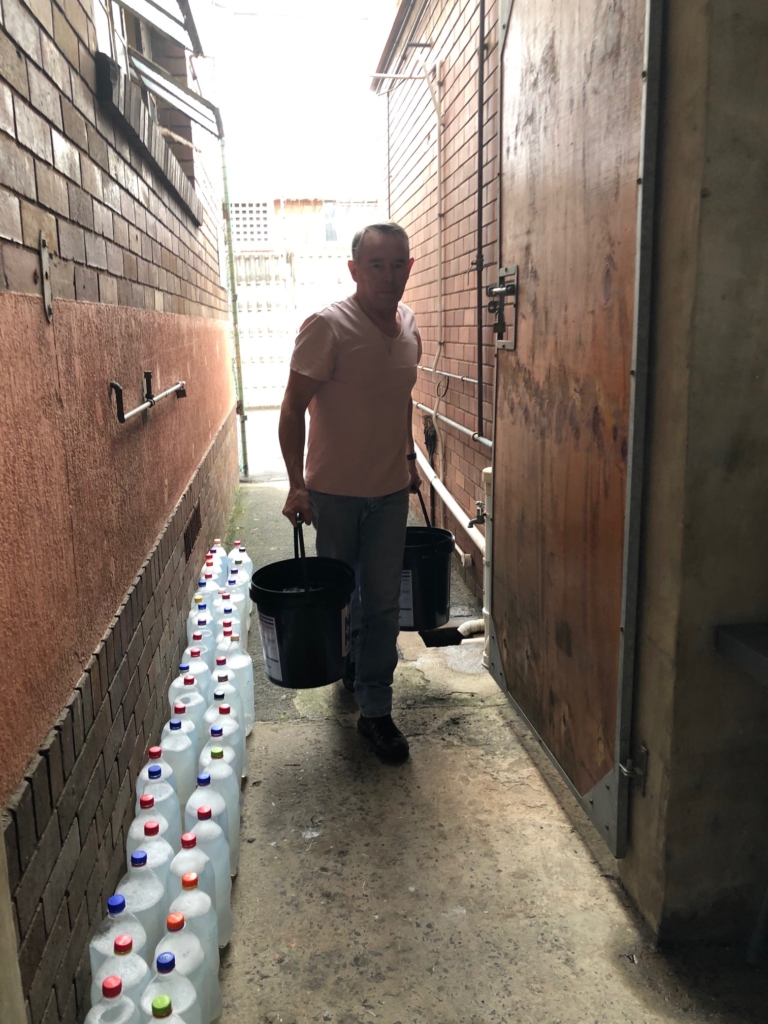
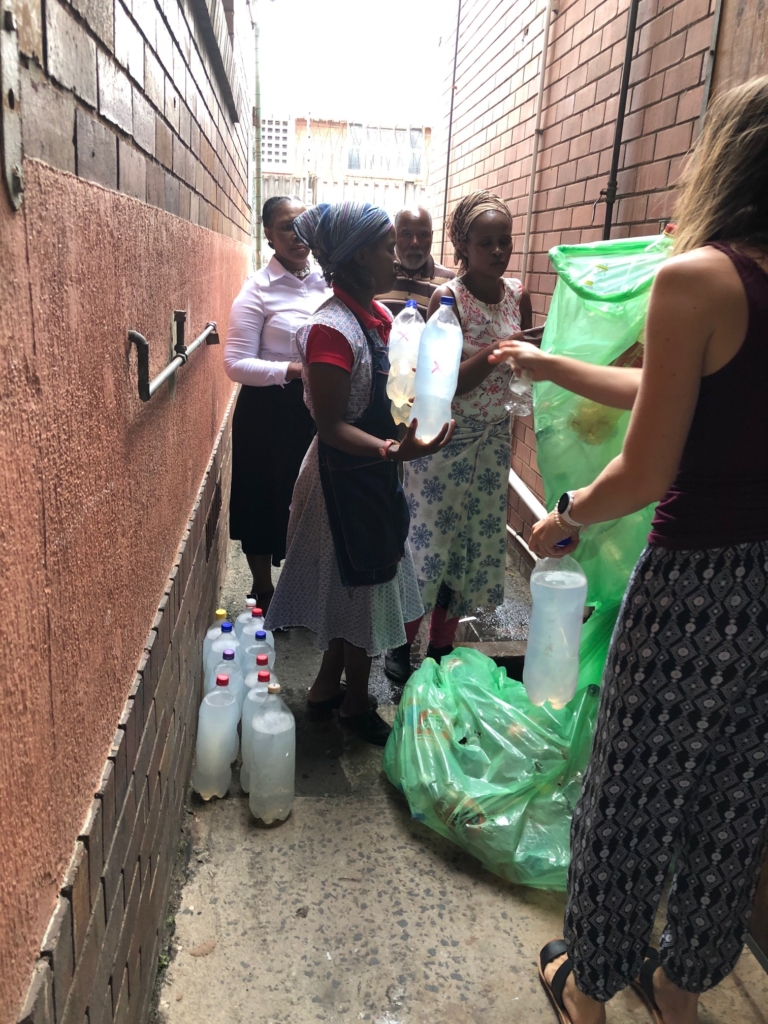
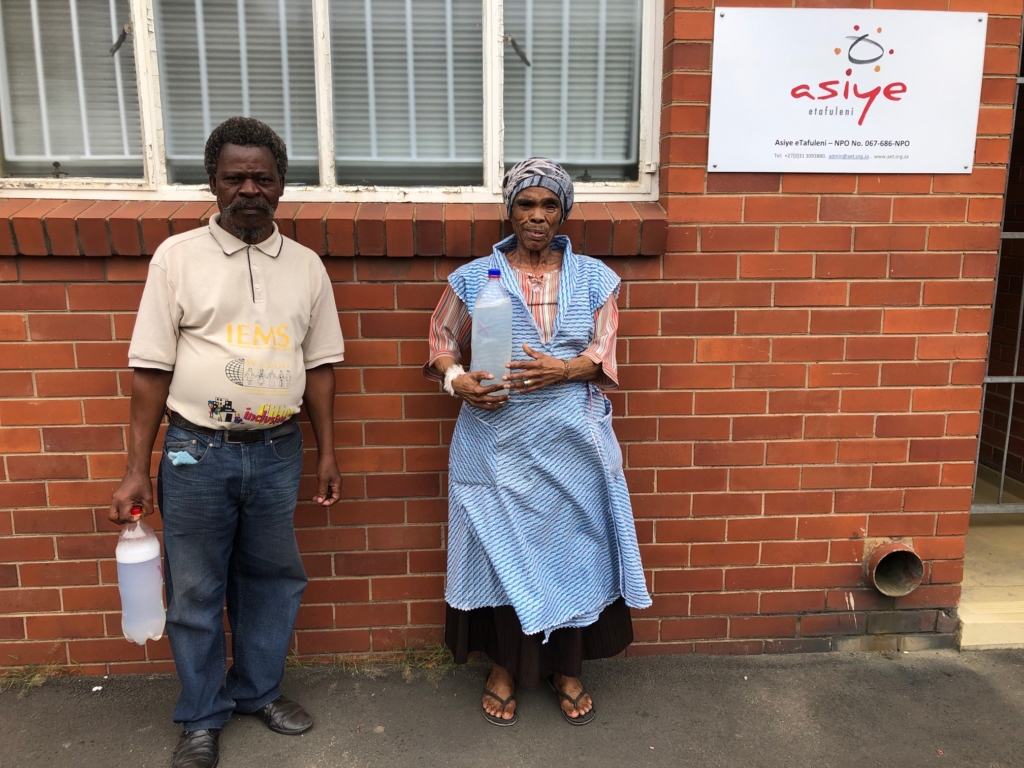
Bottling and Distribution of Sanitizer to the Warwick Junction Community. Photo’s: Toni Ottanelli-Gale.
The community’s response was one of gratitude amidst such uncertain times. After trading that day many of them will have packed up their trading space and gone home to face 3 weeks of lockdown, which means 3 weeks of not earning a livelihood. AeT recognises the huge impact this will have on this community, as informal workers across the country, and are working on various strategies to support them through this crisis as well as closely tracking the relief schemes for the informal economy announced by the president on Monday 23rd March.


